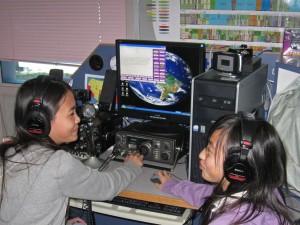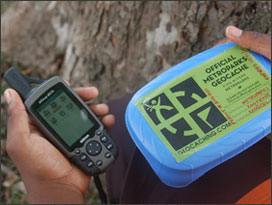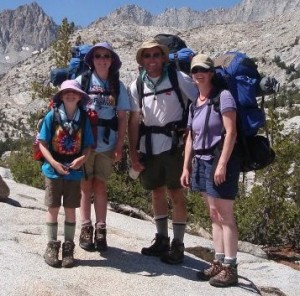 There is so much knowledge and information in the preparedness community. I love listening to experts speak from their experiences because I never want to stop learning myself. I enjoy reading novels that cater to the survivalist or prepping community because imagination is a skill everyone should have and could help you when you think there are no other options. I am inspired continually as I get the opportunity to take part in a daily dialog with the readers of the Prepper Journal. Like most of you I would imagine, I started reading other blogs and watching YouTube videos to get my initial motivation and basic information for what was the start of my personal prepping story several years ago. All of these sources of information taught me a lot of invaluable ideas and concepts but they are really just the beginning of learning. They simply served as the catalyst to whet my appetite for a whole new world that until then I had been aware of. These sources of information lit the spark that would turn into a flame.
There is so much knowledge and information in the preparedness community. I love listening to experts speak from their experiences because I never want to stop learning myself. I enjoy reading novels that cater to the survivalist or prepping community because imagination is a skill everyone should have and could help you when you think there are no other options. I am inspired continually as I get the opportunity to take part in a daily dialog with the readers of the Prepper Journal. Like most of you I would imagine, I started reading other blogs and watching YouTube videos to get my initial motivation and basic information for what was the start of my personal prepping story several years ago. All of these sources of information taught me a lot of invaluable ideas and concepts but they are really just the beginning of learning. They simply served as the catalyst to whet my appetite for a whole new world that until then I had been aware of. These sources of information lit the spark that would turn into a flame.
To truly learn a skill at some point you have to take what you have read and get out there and do it. That is the main reason that almost any author including me tries to admonish anyone who will listen to actually get out there and start doing something. As my friend Todd at Survival Sherpa says, Doing the stuff is the most important way to start learning and mastering these skills that you have identified as important to your safety or survival. Simply reading about canning isn’t going to teach you as effectively as doing it yourself will. You can read about everything from the proper jars and lids to use, to different canning methods, to old recipes and that is fine for background. It won’t be until you have a kitchen full of tomatoes and counters that are full of jars and a general mess to clean up that it starts to sink in. It won’t be until you ruin a batch of beets by leaving them in the pressure canner overnight because you started too late to wait around and take them out will you learn that valuable lesson. At least I didn’t.
Doing the Stuff as Todd says is critical but sometimes we make this out to be more complicated than it needs to be. Or, maybe another way of looking at it is that we put these things we know we need to do in a box on a shelf that we think we will get to later. For example I would absolutely love to take a wilderness survival course, but I don’t have the time right now to register for the next 4 or 5 that are in my near region. I also don’t have the vacation to take a week off so I put this on the shelf for later. I could use as much tactical training as they have but courses cost money and take time… so that goes on the shelf too. I have often wished I could take long-range rifle training and there is a place in my state that teaches that skill. Yep, on the shelf for later.
I started to look at all of the things I wanted to do that were sitting on my shelf waiting for the right time or opportunity or funds to magically appear and thought that I was wasting so much of what precious time I had. Then I had a thought that there are a lot of things we can do right now that don’t necessarily have to be so formal. They don’t require signing up for a class and can help anyone with vital skills that will be necessary if we do have a grid-down situation in our future. These activities can be done by virtually anyone and if you aren’t careful, they may even be considered fun. Hobbies are another term you can throw at this “training”. Call it what you want but the following 4 activities below can help you learn valuable survival skills. You don’t have to sign up for a week long camp in tactical gear with a 1000 round minimum either. Even though I still really want to do that myself.
Backpacking
Backpacking is the perfect way to test out that Bug Out Bag
Backpacking isn’t training? It’s what you do in the summer with your son’s Cub Scout troop or the church’s Men’s ministry, right? Well, like the rest of the items I will list most people look at this as fun, but preppers can learn invaluable lessons that will apply to a wide array of scenarios just by practicing these different activities. When it comes to all of your planning and preparation for Bugging Out we almost universally talk about strapping a big backpack with everything we own on our backs and heading out into the woods to survive. What better way to test this out than to actually do that. Put a pack on your back and go live in the woods for a couple of days. Hike around with all of the gear you have packed that will keep you alive and safe and see if you don’t change your mind on some items at the end of your trip.
Backpacking is nearly identical to what you would be faced with in a true bug out situation from the standpoint of carrying the supplies you need on your back that will keep you alive for a few days. You also have the added benefit of being able to practice virtually everything you would use in a bug out scenario without any emergency. You can experience carrying that pack, living in inclement weather, seeing how your kids hold up, drying out wet gear, blisters, ticks all without any emergency. You can even try starting real fires with that flint and steel you purchased and navigating with a compass and a map.
Backpacking does require some purchases of equipment, but so does any bug out bag. When you have your gear ready for your BOB, strap it on and head out on a well planned trip into the woods for a couple of days. The knowledge you will gain will be priceless AND, you should have a great time to boot. Check out nature on your own terms now and learn how to live in it before you make that your last ditch plan for survival.
Hunting

Hunting teaches valuable skills
We talk a good bit about home security, purchasing the best firearms and safety for our families and friends if the grid goes down. If we are forced into a long term emergency where the Rule of Law is out the window (WROL) firearms are strongly recommended as one facet of a well-balanced security plan. But how can you get realistic training on how to use those firearms?
You can go to the range and I do this myself, but shooting at paper targets only teaches you so much. When you are outside pulling that trigger, knowing that if the shot connects you will kill something, you do have a different sensation than squeezing off rounds at zombies printed on glossy paper. Your reaction times, judgment and experiences are 180 degrees different from a range and this is also valuable training for a few reasons.
What can you learn from hunting? You can learn to hunt first of all and this is important for all of the people who plan on bugging out and living off the land. If this is your plan and you have never shot at anything in your entire life… let’s just say you need some practice. Hunting isn’t as simple as walking out into the woods quietly with some camo on. There are tactics that you can learn like stalking game, patterns to watch for and besides the benefit of actually putting some food on the table, hunting in my opinion can bring you closer to nature.
Depending on how and where you are hunting, you can also learn to read signs of animals to see where they have been, you can learn habits they have and concealment options yourself. This can help you if you are forced to defend your home or retreat from invaders. You will also learn what it feels like to kill something. Now, I am not equating an animal with a human out to harm you, but this is still valuable I think.
You will learn where to hunt and most likely you will be hunting with someone who you can share experiences and knowledge with. Is this going to take the place of tactical training in fake buildings with your AR? No, but compared to nothing, hunting will give you a lot of exposure and experience in finding food, shooting weapons and getting outside. Bonus points if you are backpacking as well as hunting!
Ham Radio
If the grid goes down, usually so do communications. Cell phone towers and land lines are susceptible to power outages or downed lines. Even construction can take down cell and internet access when lines are cut. What do you do when you need to communicate with your family or your group or people hundreds of miles away? Ham Radio.

Its a good idea to learn how to use radios now before you need them.
Ham Radio is virtually the only option I ever hear mentioned in preparedness circles but it is a fantastic option. Ham operators can communicate when traditional forms of communications are down. Due to their range and flexibility, ham operators are usually depended on for communications in emergency situations. Using a simple set up, ham operators can communicate with satellites even or bounce signals off the moon. I have yet to hear of a better grid-down option.
So why do you need to train? Can’t you just grab a radio and start talking? Yes and no and this is where the training part comes in. The Amateur frequencies are pretty vast and learning how to navigate the world of bands, frequencies, repeaters and antennas isn’t something that most people aren’t going to figure out just by picking up a radio. There is a ton of information about ham radio out there but I think it is important to start practicing now well before any emergency. Knowing the ins and outs of ham radio is just like anything else, you need practice with it and there is no better time than right now. Get your license and some basic equipment and start learning how to communicate.
Getting into Ham Radio can be pretty expensive but you can do this on the cheap also. There are several great options for handheld transceivers (HT) that are under $40 like the Baofeng UV-5A that will get you on two of the bands, 2 meter and 70 cm. Add a simple antenna and you can easily talk to people for a pretty good distance. Connect to a repeater and your range extends to hundreds of miles. Grab several of these radios for group communications and you are in business.
Even if you don’t want to talk to anyone on ham radio, gaining information and intelligence from well outside your city or even region could be vital to your survival if the grid is down or communications have been blacked out.
GeoCaching

Geocaching is a fun activity for the entire family.
Two things come to mind when you are talking about Bugging Out. The first is usually navigating to a location that is reasonably far enough away to take you out of the danger present where you are. The second is hiding caches to support you on that trip. Survival Caches can even be hidden if you aren’t bugging out. You may need to hide something that you can take advantage of later and knowing precisely where either of those two locations are and alternate ways to get there is important.
What can Geocaching do? For starters, Geo caching is a fun activity you can do with your family to get them out of the house. This time of year is perfect for geocaching too because it is getting a little cooler and it’s a lot more fun (for me at least) to be outside in the woods. Geocaching if you don’t know is a game where you find hidden caches of various things using clues and GPS coordinates. You can read all about the game on the Geocaching website and a more detailed description of why I think this is a valuable skill to have at our previous post on the subject.
Essentially it comes down to knowing how to find supplies you have hidden but maybe more importantly, how to hide items you don’t want anyone to find. If you have played the game of Geocaching long enough you will start to notice common places to hide something. I can go into an area now and look for the most obvious tree, or clump of bushes to find the cache and you can use this to your advantage. The only thing you need is a smart phone because they have apps now to play the game. I recommend having a GPS because knowing how to use one of these is a handy skill too.
Hopefully that gives you some ideas for “training” you can use with your family or friends that is easy and has a low learning curve. You don’t have to save your vacation or money to go to that tactical school in the next state when you can learn some elements of those same comments yourself in ways that people are doing right now.
Do you have other survival training ideas that can be used everyday?

